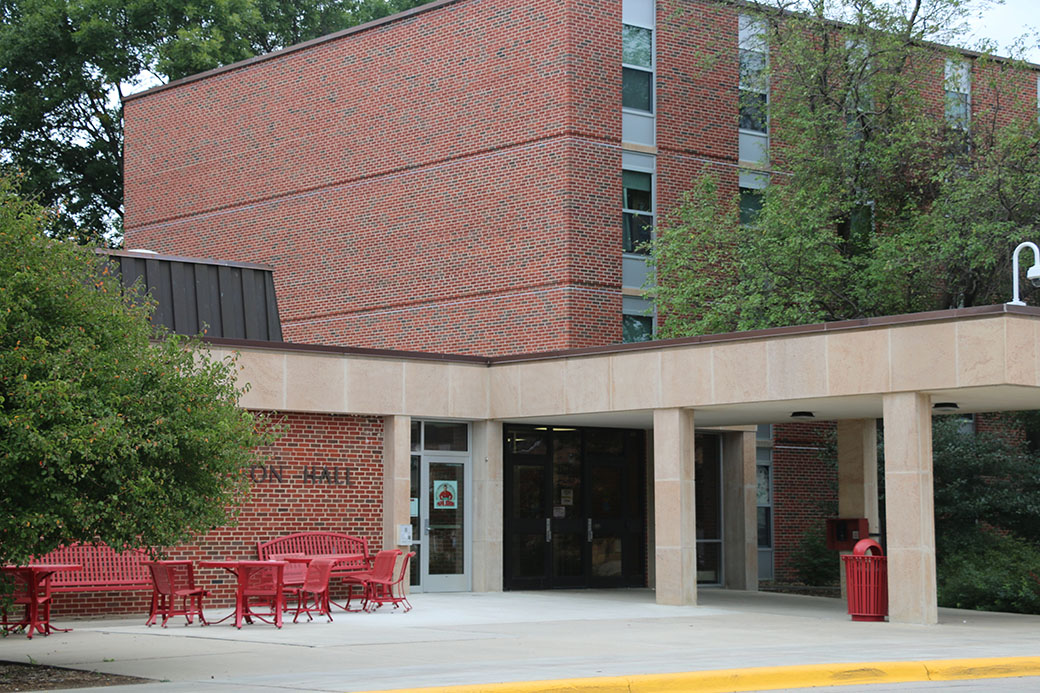
False alarm: preparing students for actual fire
Surrounded by about 1,000 of their peers in their residence hall, any student can expect to hear the fire alarm at any time. Students deal with fire alarms regularly; whether it’s a drill, smoke from students trying to grill hamburgers in their kitchenette or an actual fire.
Jonah Eggers, a North Complex resident and first-year business major thinks that he and his peers are prepared in case a fire does occur.
“I think we’re pretty prepared, but the fire drills happen more than they should,” Eggers said. “It’s like the boy who cried wolf — you never really know when it’s actually real, but I feel like we’re ready.”
Although Eggers thinks the periodic fire alarms going off makes them seem less real, Hunter Smith, USD’s Safety Officer of four years who conducts safety inspections and fire drills, would disagree.
“I think redundancy is key in getting the drill down and knowing what to do if there is a fire,” Smith said.
North Complex, which can house up to 1,136 students, is lucky to have not had a serious fire, Smith said.
“North Complex has had a little bit of luck,” Smith said. “You’re dealing with a lot of incoming freshmen who still have a lot to learn about the world, and things happen.”
Matthew Taggart, captain of the Vermillion Fire Department, said the age of the 50-year-old building doesn’t correspond to the safety it provides.
“The age of a building doesn’t necessarily reflect its safety,” Taggart said.
Although North Complex is 50-years-old, Smith keeps the building up to code and makes sure it has all the necessary equipment to tame a threatening fire. Smith, who has proper fire extinguisher training and knowledge in handling dry chemical extinguishers, inspects the fire alarm system, the fire extinguishers and sprinklers. He also conducts drills and trains the housing department in what to do in case of a fire.
Though Eggers said he thinks students are prepared for a fire, and Taggart and Smith say North Complex is prepared to handle a fire, Smith and the university have a plan of action in case
tragedy strikes.
“First, everyone has to evacuate, and the fire department is called. The fire will be extinguished, and the fire chief will go in and they will check everything out,” Smith said. “Then we will have to figure out where to put people and how the fire started. No one will be allowed back until the building is safe and everything is remediated, including smoke or water damage.”
If North Complex were to catch fire and receive serious damage, its 1,136 residents will have to be relocated for an extended period of time until the building is safe to re-enter. Smith said there have been emergency plans established as to where the students will go, while the building is being worked on.
“We have agreements with hotels for students to stay until the damage is fixed,” Smith said.
Smith said he’s unsure if students would have to pay extra fees on top of their housing bill if they did have to stay at hotels. He said it’s highly unlikely for North Complex to have a severe fire, as long as the housing staff and residents are cooperative in the fire drills and
false alarms.
“North Complex staff are good to work with. They take directions well and I am confident that in a real situation that things will be handled properly,” Smith said. “That’s why we have drills and inspections. The only reservation would be when somebody thinks it’s a false alarm and doesn’t leave when they are supposed to, or hides out in their room. It’s important for people to take
this seriously.”


